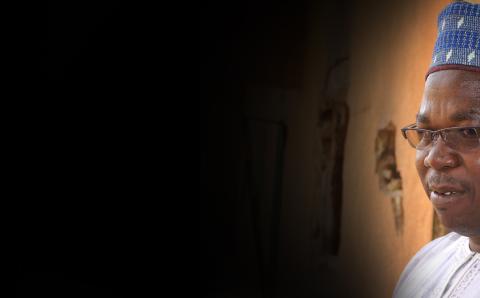Two framed photos sit side by side on a shelf in my office: one of Abraham Kuyper and the other of Dorothy Day. I got the idea from Dirk Jellema, a historian at Calvin College when I joined the faculty in the late 1960s. He had photos of the two of them on the wall in his office. When I moved to Fuller Seminary in 1985, I did the same in my new office.
I never asked Dirk—a long-time historian at Calvin—why he paired Kuyper’s photo with that of the American-born founder of the network of Catholic Worker houses. After encountering Christ and converting to Catholicism in the 1920s, Dorothy Day devoted herself to peacemaking activities and lived among the poor, providing them with food and shelter on a daily basis. This was a far cry from Kuyper’s role as the founder of a university and a national leader in Dutch politics. I have always assumed, though, that Dirk saw Dorothy Day as a providing a necessary supplement to Kuyper’s social and economic thought.
In my book Uncommon Decency, I pointed out that when Kuyper referred to Jesus—which he did quite often—he seemed to be especially fond of depicting the ascended Christ. His well-known manifesto about Christ ruling over every square inch of the creation is an obvious case in point. That is not an emphasis that showed up in Dorothy Day’s talk about Jesus, or in that of Mother Teresa, another Roman Catholic who also worked among the poor. These women were all about finding Jesus among the poorest of the poor—in Mother Teresa’s case, dying lepers on the streets of Calcutta.
In my book I warned against a triumphalist tendency in Kuyperian thought. Jesus has indeed redeemed the whole creation from the curse of our fallenness, and our task as followers of Christ is to reclaim those square inches for the cause of the kingdom. But this may often mean committing ourselves to suffer alongside those who live in desperate situations. A good corrective, I argued, is to identify with the concerns of Jesus that Mother Teresa took so seriously, following him to those lonely square inches on the margins of society: among the homeless, the abused, the dying lepers.
In preparing a lecture on Kuyper’s social thought, I reread an address he gave in 1891 to the first Christian Social Congress in the Netherlands, a large gathering of Calvinists engaged in bringing a Christian witness to the labor movement. A good English version of that speech was published in The Problem of Poverty, a small book translated by James Skillen.
Reading Kuyper’s speech again, I discovered more of Dorothy Day and Mother Teresa in what he said than I remembered seeing before. “When rich and poor stand opposed to each other,” Kuyper told his audience, the Savior “never takes His place with the wealthier, but always stands with the poorer. . . . Powerful is the trait of pity, which is imprinted on every page of the Gospel where Jesus comes in contact with the suffering and oppressed.”
Jesus, who is himself the Bread of Life, Kuyper observed, also takes ordinary bread very seriously. In ministering to a hungry crowd, “he breaks the loaf into many pieces and gives them an abundance of precious fish.” And then this remark from Kuyper,* which suggests that he might have felt a special attraction to the 20th-century ministry of Mother Teresa to dying lepers in Calcutta. Jesus, Kuyper told his 1891 audience, “does not hold back His hand from the touch of leprous flesh.”
I still wish that Kuyper could have met Mother Teresa and Dorothy Day. But having discovered this reference by him to the way Jesus ministered to lepers, I am now confident that he would have warmly greeted the two women—as I am sure he already has, in the direct presence of the Savior whom the three of them loved and served during their earthly journeys.
*From an out-of-print translation of Kuyper’s speech by former Calvin history professor Dirk Jellema.
Questions for Discussion
- How would you describe the “triumphalist tendencies” in Kuyper’s “every square inch” depiction of Jesus’ reign as the ascended Lord?
- In what ways do you see the Reformed emphasis on Christ’s universal reign in our commitment to the poor?
- In what ways does Jesus’ “triumph” looks different than the way the world would characterize a triumphant and victorious Lord?
About the Author
Richard J. Mouw, retired president of Fuller Theological Seminary, is newly appointed Senior Research Fellow at Calvin University's Henry Institute for the Study of Christianity and Politics.









